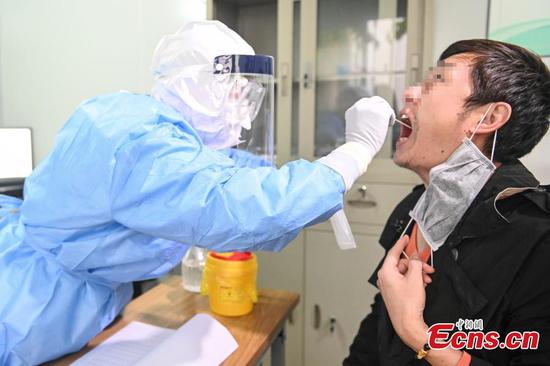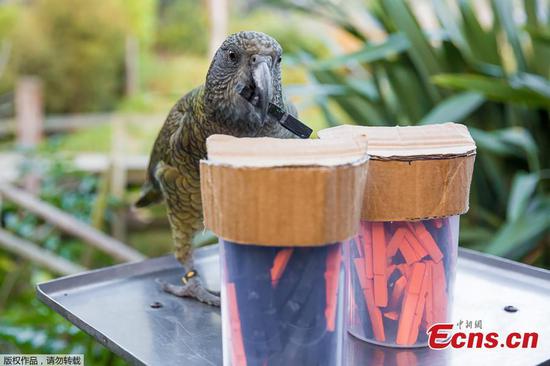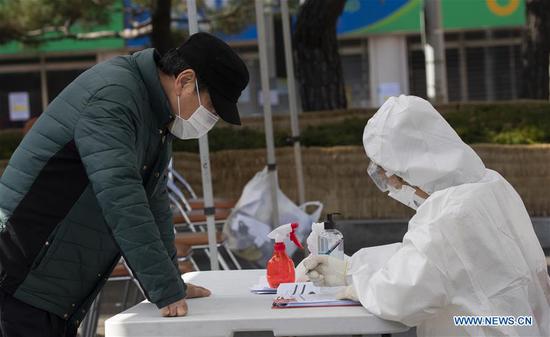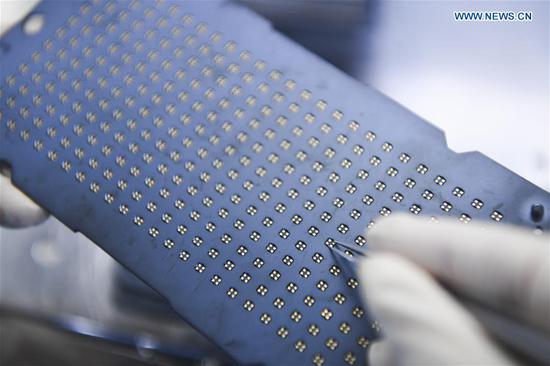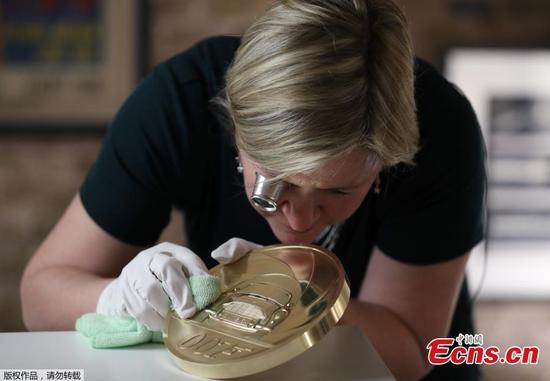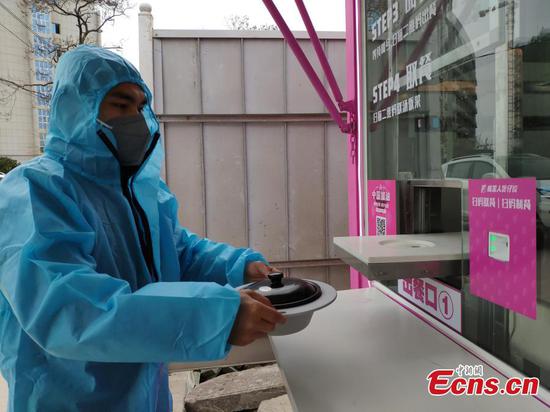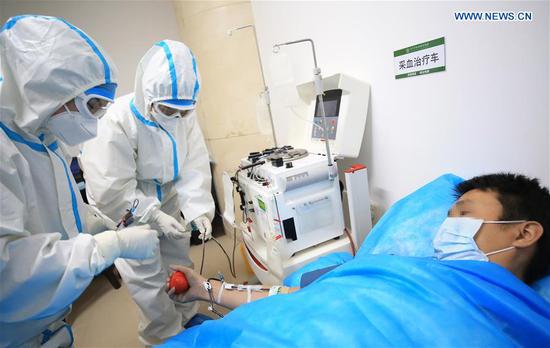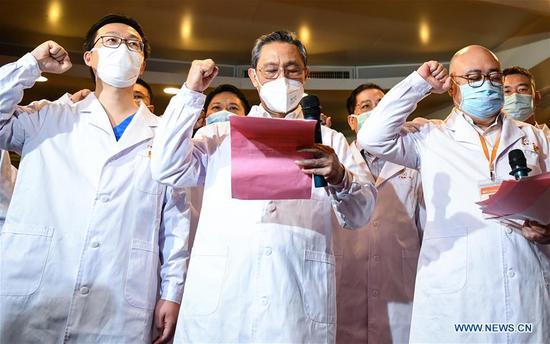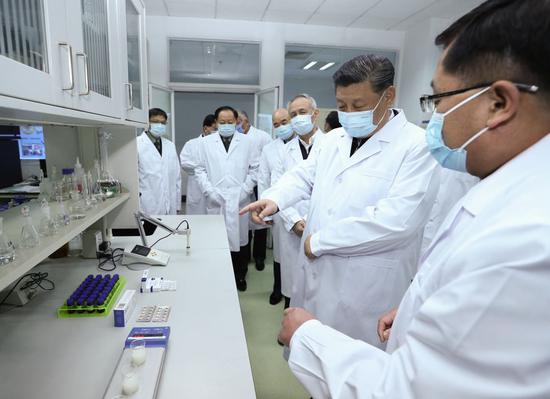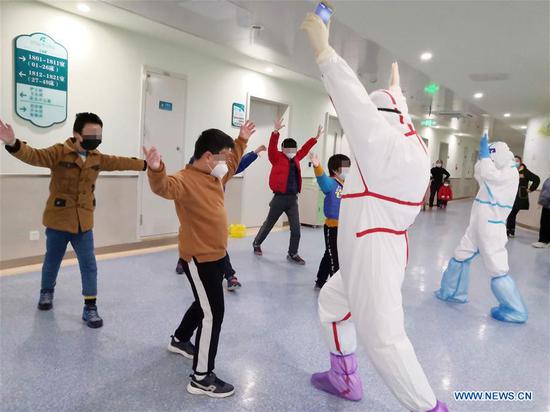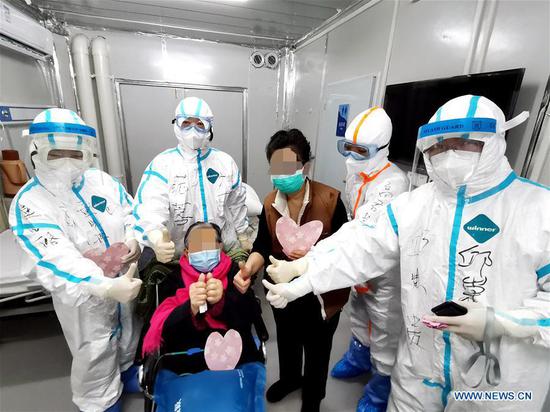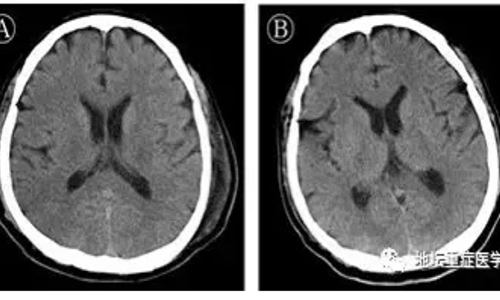
(Photo/Screenshot photo of Wechat of ICU department of the Beijing Ditan Hospital)
A Chinese doctor has warned the novel coronavirus can attack a person's central nervous system as gene sequencing at Beijing Ditan Hospital has found coronavirus in the cerebrospinal fluid of a 56-year-old confirmed COVID-19 patient with encephalitis, which provides evidence that COVID-19 can invade patients' nervous systems, just like SARS and MERS.
It is the first case that proves the novel coronavirus can damage people's central nervous system, media reported Wednesday.
Liu Jingyuan, dean of the ICU department of the Beijing Ditan Hospital and attending doctor of the 56-year-old patient, warned that doctors should check cerebrospinal fluid if patients suddenly slip in and out of consciousness, in order to lower the fatality rate of critical patients.
The patient recovered and was discharged from hospital on February 25. He was hospitalized one month earlier for respiratory failure. Doctors conducted gene sequencing on his cerebrospinal fluid as he showed symptoms of neurological disorder like twitching on the face after days of treatment while a CT scan and biochemical test results could identify the causes.
One week before the case was revealed, Chinese researchers issued a preliminary paper warning that the COVID-19 could possibly affect a patient's nervous system, according to media reports.
The paper is authored by a team led by Hu Bo, a doctor from Union Hospital under the Huazhong University of Science and Technology and has not been peer-reviewed.
It said that 30 percent of the 214 patients the team studied showed symptoms in their nervous systems and the rate is even higher in critical patients at 45.5 percent.
The authors warned that doctors should pay attention to nervous system expressions and conduct virus tests when seeing symptoms appear to avoid misdiagnosis or delayed diagnosis, which would also help prevent the spread of the virus.
China issued the seventh treatment guide for COVID-19 on Tuesday that includes results of autopsies, which clarifies that the novel coronavirus could damage various organs including brain tissue.













